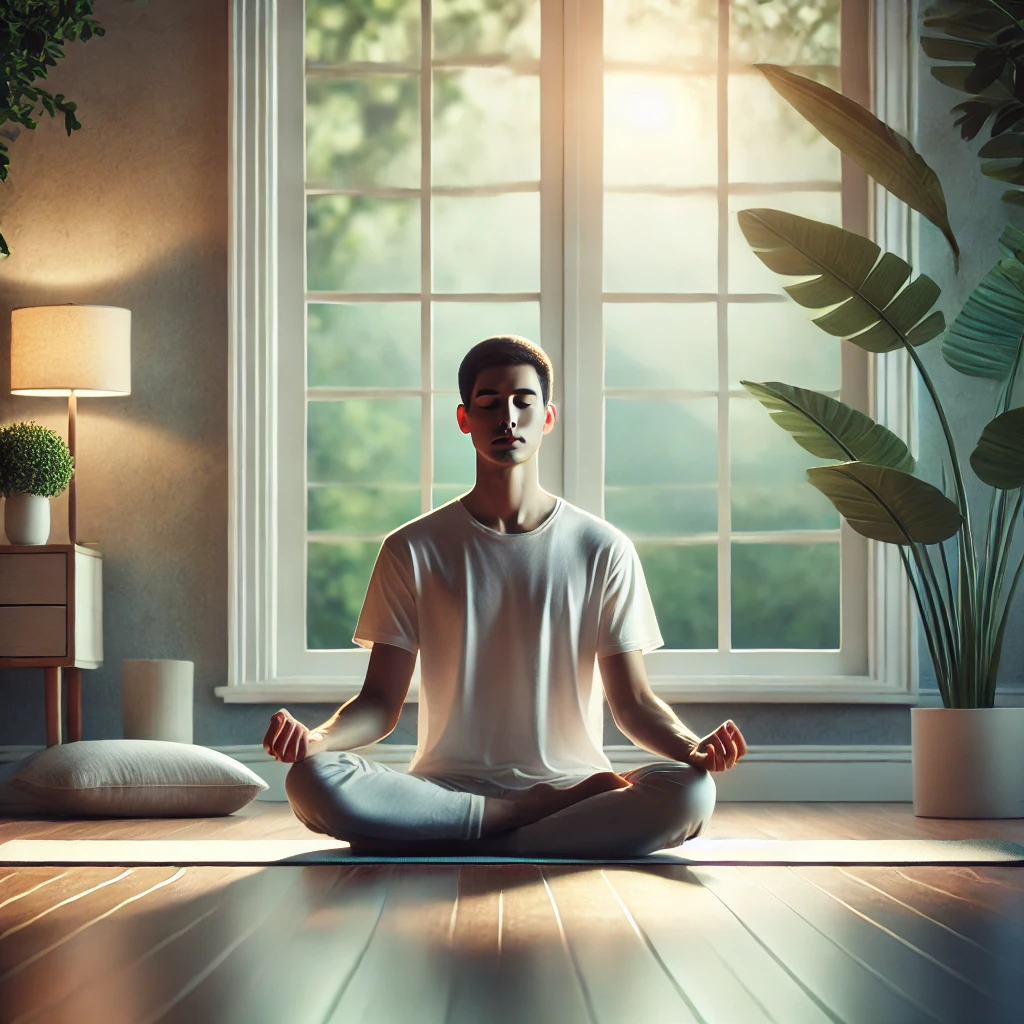Introduction: Why Meditation Is An Effective Strategy for Anxiety Relief

Anxiety can leave us feeling disoriented; our thoughts race, our heart rates quicken, and it becomes hard to focus. Meditation has proven itself effective at alleviating mental noise. Unlike medication, however, meditation involves no side effects and can be practiced anywhere, making it perfect for stress, anxiety or trouble sleeping sufferers seeking relaxation and control of their lives.
Section I: Understanding Anxiety and Meditation’s Help
What Is Anxiety? Anxiety goes beyond simple stress: it is an anxiety condition where worry and fear become overwhelming, altering how we think, feel, and behave in everyday situations. Anxiety might manifest as racing thoughts, a tight chest, difficulty sleeping, or racing thoughts that prevent sleep altogether. Each individual may experience their anxiety differently, but meditation can assist all individuals with managing it effectively.
How Meditation Ameliorates Anxiety
Meditation works to relax both mind and body. While practicing, practitioners focus on breathing or sound to take away anxious thoughts. Studies have also indicated that regular meditation reduces cortisol levels, which tend to rise with anxiety, ultimately leading them to be better at remaining calm under stressful conditions.
Section 2: Anxiety-Reducing Meditation Practices
How Meditation Can Relieve Anxiety Relief
Are You Wondering How to Meditate for Anxiety? Meditation for anxiety can be remarkably simple! Just find a comfortable sitting position, close your eyes, and take deep, slow breaths while focusing on feeling your breath come in and out of your body. Even just five minutes each day can make a significant impact, so don’t worry about getting it perfect; start and see where it takes you!
Guided Meditation for Anxiety Relief
Guided meditation can be a wonderful tool for beginners to practice mindfulness. With its soothing voice leading you through each step of the practice, it’s like having a supportive friend by your side. There are numerous apps and YouTube videos offering guided meditation for stress and anxiety, making it easy to find a practice that suits your needs and keeps you on track with regular sessions—whether daily, weekly, monthly, etc.
Morning Meditation to Calm Anxiety

Start your day right by beginning it with morning meditation for anxiety. This invaluable habit helps set a calming atmosphere for the day ahead. But remember, meditation can be practiced at any time that suits you—whether it’s a quick session during your lunch break or a longer practice in the evening. The choice is yours, and it’s all about finding what works best for you!
Section 3: Guided Meditation for Anxiety-Related Challenges
Meditation for Sleep and Anxiety Relief

Meditation for sleep and anxiety aims to ease racing thoughts by relaxing your mind before rest. Most sleep meditation exercises involve breathing or muscle relaxation exercises; try practicing them before bed to fall asleep more quickly and deeply.
Meditation to Relieve Anxiety and Overthinking
Anxiety often stems from overthinking. Replaying scenes or worrying about things that have yet to occur are symptoms of stress; guided meditation for anxiety and overthinking helps recognize when thoughts spiral off-course and bring your focus back onto what’s happening right now, gradually helping reduce those persistent worries over time.
Meditation for Anxiety and Depression
Anxiety and depression often go hand-in-hand. Meditation may offer support by creating a more peaceful mindset. While not intended as a replacement therapy solution, meditation may assist with managing both conditions by helping you feel grounded and in charge of your emotions.
Section 4: Music and Meditation for Stress Relief
Meditation Music to Reduce Anxiety (MMAIA)
Meditation music designed to reduce anxiety can be invaluable to your practice. Relaxed sounds such as nature or soft instrumental music create an ambience conducive to deep restfulness that facilitates deep meditation practice or serves as a background ambience while working or unwinding at home. Play soothing meditation music while you practice, or use it simply for background ambience while working or unwinding at home—either way, it will serve you well!
Section 5: Coping With Anxiety Attacks
Meditation for Anxiety Attacks
Meditation for anxiety Attacks During an anxiety attack, it can feel like everything is spinning out of control. In these moments, meditation can be a powerful tool to help ground you back in reality and into present-moment awareness. One straightforward meditation technique involves counting four breaths with a four-count inhale, holding for four counts, and then exhaling for four. Repeat this cycle until you start to feel more grounded. This practice can help slow your heart rate and soothe your mind and heart during challenging moments.
Meditation for Anxiety Disorders
Meditation may be an invaluable asset when living with anxiety disorders, complementing therapies such as therapy. Meditation helps build resilience while teaching healthier ways of responding to stressful situations—ultimately decreasing its overall impact.
Section 6: Implement Meditation into Your Daily Routine
Building a Sustainable Meditation Practice
Meditation doesn’t need to be complicated; just five minutes daily should do. Once started, gradually build on this commitment as your comfort increases. Choose either morning or bedtime for meditation practice to reduce anxiety; guided meditation apps may also be a helpful aid. Over time, mindfulness practice will become part of your routine, helping you feel relaxed yet secure.
Conclusion: Finding Peace Through Meditation
Meditation for anxiety offers a simple yet effective solution to help soothe your mind and relieve stress. From quick guided sessions to building daily practices, the key to successful mediation practice for anxiety relief lies in consistency—start small, be kind to yourself, and enjoy the journey towards calmer thoughts!
FAQ:















Add comment